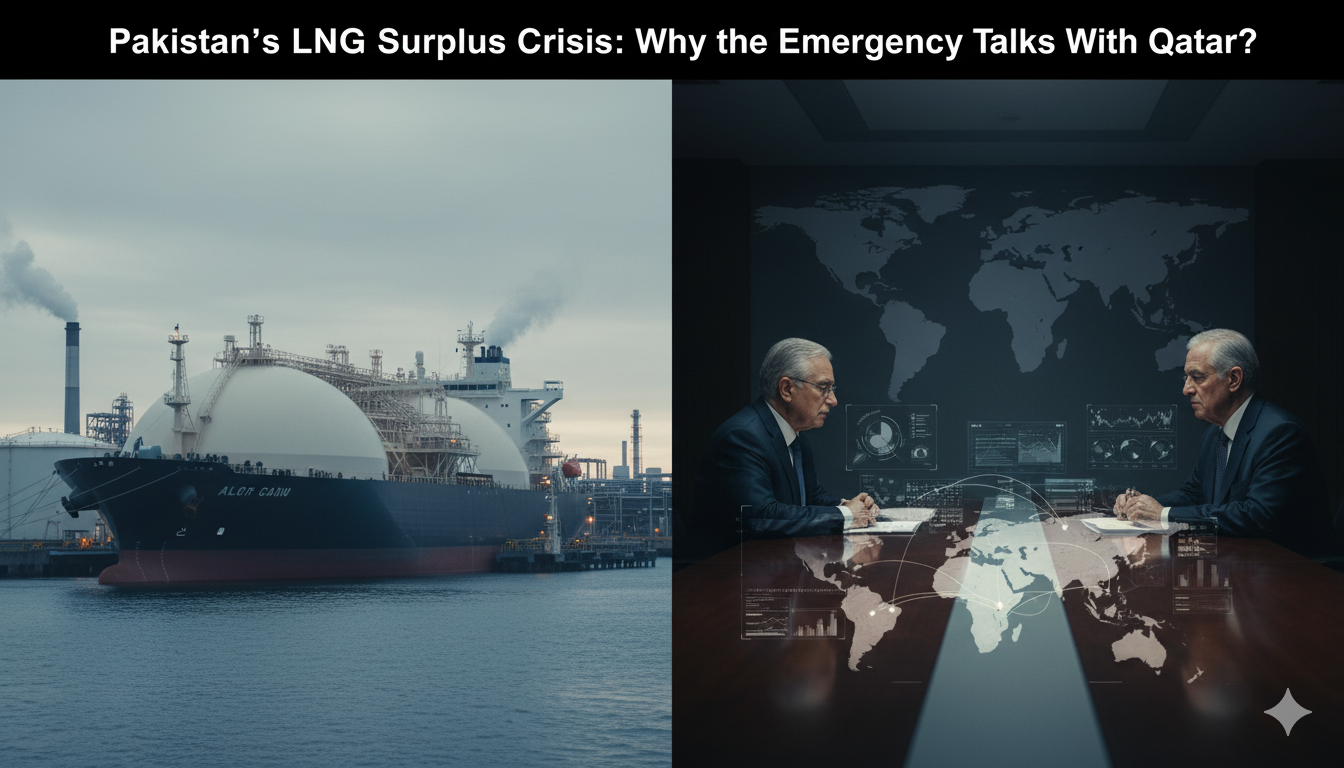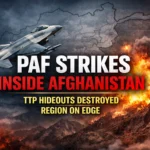Pakistan is facing a serious LNG (liquefied natural gas) surplus crisis, which has forced the government to send a high-level delegation to Qatar to renegotiate existing contracts.
What’s Happening?
Pakistan imports up to nine LNG cargoes each month from Qatar under rigid long-term “take-or-pay” contracts. But with demand falling sharply, the country now faces a glut of LNG that the system cannot absorb.
Key Problems
Massive surplus: At least 51 cargoes—worth $1.2 to $1.5 billion—are projected to be in surplus between 2025 and 2026.
Infrastructure strain: Pipelines are under dangerous pressure, forcing curtailment of local gas production.
Financial burden: Losses of nearly $378 million a year are expected if this imbalance continues.
Contract rigidity: Pakistan cannot easily resell excess LNG due to restrictions in Qatari contracts.
Government Response
To address this, a delegation led by Petroleum Minister Ali Pervaiz Malik has been dispatched to Qatar. The team will seek:
Deferral of 177 cargoes over five years.
Permission to divert two cargoes per month in 2026 to international markets.
Renegotiation to reduce monthly supply from nine cargoes to six or seven.
The Real Issue – Poor Planning & No Accountability
This entire LNG crisis highlights poor planning and shortsighted policy decisions. The real question is: will those responsible ever be brought forward, questioned, and held accountable? If required, will they be punished? For how long will public money continue to be wasted like this? Until and unless rules and laws are implemented in true spirit, such blunders will keep recurring, and the burden will fall on ordinary citizens.
Conclusion
Pakistan urgently needs not just stopgap negotiations with Qatar but a comprehensive, long-term energy policy that ensures planning, transparency, and accountability. Without strict adherence to rules and proper foresight, the country risks repeating the same cycle of shortages, surpluses, and financial losses—leaving the public to pay the price.










